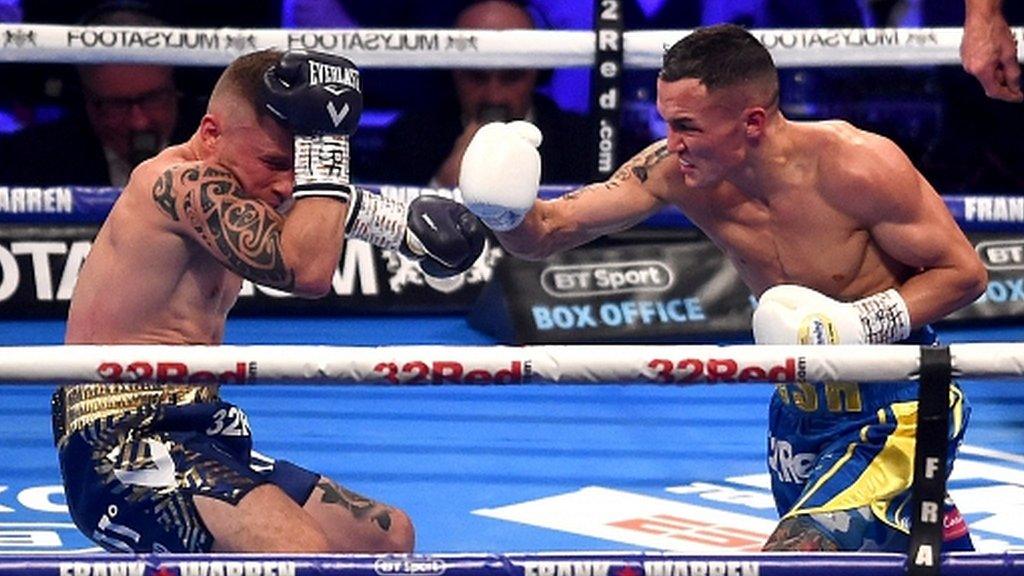Mike Costello column: 'Another golden era is under way for British boxing'
- Published
- comments
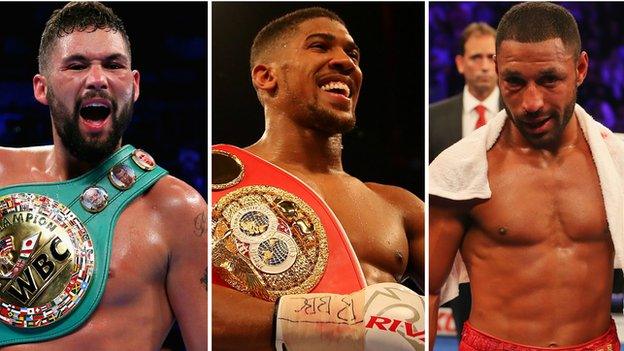
There are now more British world champions than at any point in history
Anthony Joshua and Wladimir Klitschko took us back to heavyweight heaven.
Tony Bellew and David Haye stirred emotions ranging from admiration to disgust.
Then, last weekend, it was the turn of Errol Spence and Kell Brook to extend a mind-blowing three-month spell that has catapulted boxing back into Britain's sporting mainstream.
An edition of 'Desert Island Rounds' could include one from each of those three fights which, between them, attracted crowds of about 135,000.
These are special times, and at no point since the emergence of satellite and cable TV almost three decades ago has boxing in this country flourished to such a degree.
Britain's Olympic system is producing not only medals at major championships but also brilliantly schooled recruits to the professional ranks, with James DeGale and Joshua the first Britons to add professional world titles to Olympic gold.
Of Britain's other world champions, Billy Joe Saunders also came through the Olympic programme, while Bellew's amateur pedigree includes three national ABA titles.
Talent, though, is only as important as management and promotion.
Just as boxers have to decide when to take aim and when to take cover, their backers have to judge when to consolidate and when to gamble in the choice of opponents.
The nurturing of Naseem Hamed and Ricky Hatton by Frank Warren, the guiding of Lennox Lewis by Kellie (then Frank) Maloney, and Mick Hennessy's early steering of Carl Froch all belong in the copybook.
Likewise, Joshua has been well served by Eddie Hearn, who is content to delegate in boxing matters and whose entrepreneurial skill and forthright business approach have earned him a place among the most influential promoters in the world.
Hearn has connected with a generation raised on phones and tablets whose consumer habits are shaped and satisfied online.
Boxing fans prepared to shell out have access to more coverage from more venues than at any time in the past - through Boxnation, BT Sport and Sky Sports, as well as regular offerings on Channel 5. Between and around fight nights, the growth in popularity of a swathe of online outlets has reduced the reliance on national newspapers for promotional impetus.
As ever, some fights sell themselves. Joshua versus Tyson Fury, and DeGale in a rematch with new champion George Groves would each trigger a stampede for tickets. And there are plenty more possibilities up and down the weight divisions.
No longer do we need to hark back to Benn and Eubank. Another golden era is under way.
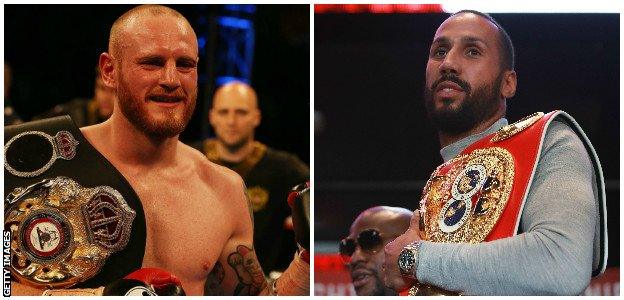
George Groves and James DeGale are hoping to unify the super-middleweight division
'The American resurgence has taken root'
He may not be aware of it, but Jeff Lacy left a legacy in British boxing.
When he came to Manchester to face Joe Calzaghe in March 2006, Lacy was billed as a 'mini Mike Tyson' and started favourite in a unification clash for the WBO and IBF super-middleweight titles. Unbeaten in 21 contests, Lacy was backed to end Calzaghe's winning run at 40 fights.
Lacy never recovered from a 36-minute rout, external as Calzaghe produced the most complete performance of his career to win every round and so alter the mindset of British boxers, whose perception of American fighters had been warped by an inferiority complex.
Since then, whenever a highly regarded American has arrived on these shores, Lacy's pounding has been cited in an effort to douse the visitor's reputation.
"Remember Jeff Lacy" is the cry, but such an isolated delve into history has led to painful miscalculations. It is not always Calzaghe in the opposite corner.
Promoters, managers or trainers sought comfort in the Lacy syndrome before Timothy Bradley dethroned Junior Witter in 2008, when Terence Crawford danced around Ricky Burns in 2014 and, more recently, when Gervonta Davis sparkled against Liam Walsh, and Spence dismantled Brook.
Hindsight is proving the Lacy result should be regarded as an outlier rather than a meaningful reference point. For all the failings of the American men's teams at recent Olympic Games, and the rapid growth of mixed martial arts, the country which has produced more world champions than any other is still churning out special talents.
As well as Crawford, Davis and Spence, the likes of Andre Ward, Keith Thurman, Charlo twins Jermall and Jermell, Deontay Wilder and Gary Russell Jr would threaten or beat the very best in their weight divisions.
After a comparatively lean spell, the American resurgence has taken root.
'Ali's story had the feeling of a miracle'
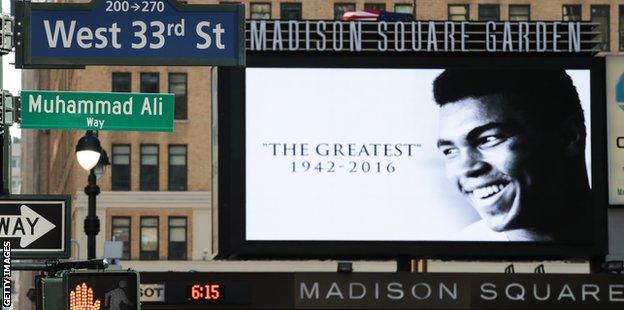
Muhammad Ali, the former world heavyweight champion, died aged 74
Sometimes, the reality matches the hype.
This week marks the first anniversary of the death of The Greatest. Reporting on Muhammad Ali's funeral in Louisville, Kentucky, was the most stirring experience of my professional career.
As the hearse was being escorted through the city, I was positioned on the corner of Ninth Street and Muhammad Ali Boulevard as the cortege turned west to head out towards Ali's childhood home.
For most of the morning, as the crowd grew from dozens at dawn to thousands at noon, I was standing close to a young mother and her three children in an atmosphere of harmony and respectful conviviality. "Why can't Louisville be like this every day?" the woman lamented, as she stood across the road from a church which carried a billboard asking for prayers for those killed as a result of violent crime in the city.
Her boys were aged between four and eight years old and, while the adults spent much of the time craning their necks for a first sight of the procession, the young bucks passed the hours wrestling and grappling and chasing each other around the patch of parkland behind. The cackling and laughter pierced the solemnity and served as a welcome distraction during a lengthy delay in withering heat.
Ali himself was rarely happier than when in the company of children, and how he would have revelled in the scene, so close to where he played those same games at the same age so many years earlier.
What if, on that morning, someone had dared to predict that one of those boys rolling around on the grass would go on to "shake up the world" in 20 years' time? And that, another decade later, he would own the most recognisable face on the planet?
Such claims would have been laughed into oblivion. Yet go back 70 years ago to that same neighbourhood...
On an occasion saturated in emotion, Ali's story had the feeling of a miracle. The man they knew as the Louisville Lip would have liked to think so.
- Published1 June 2017
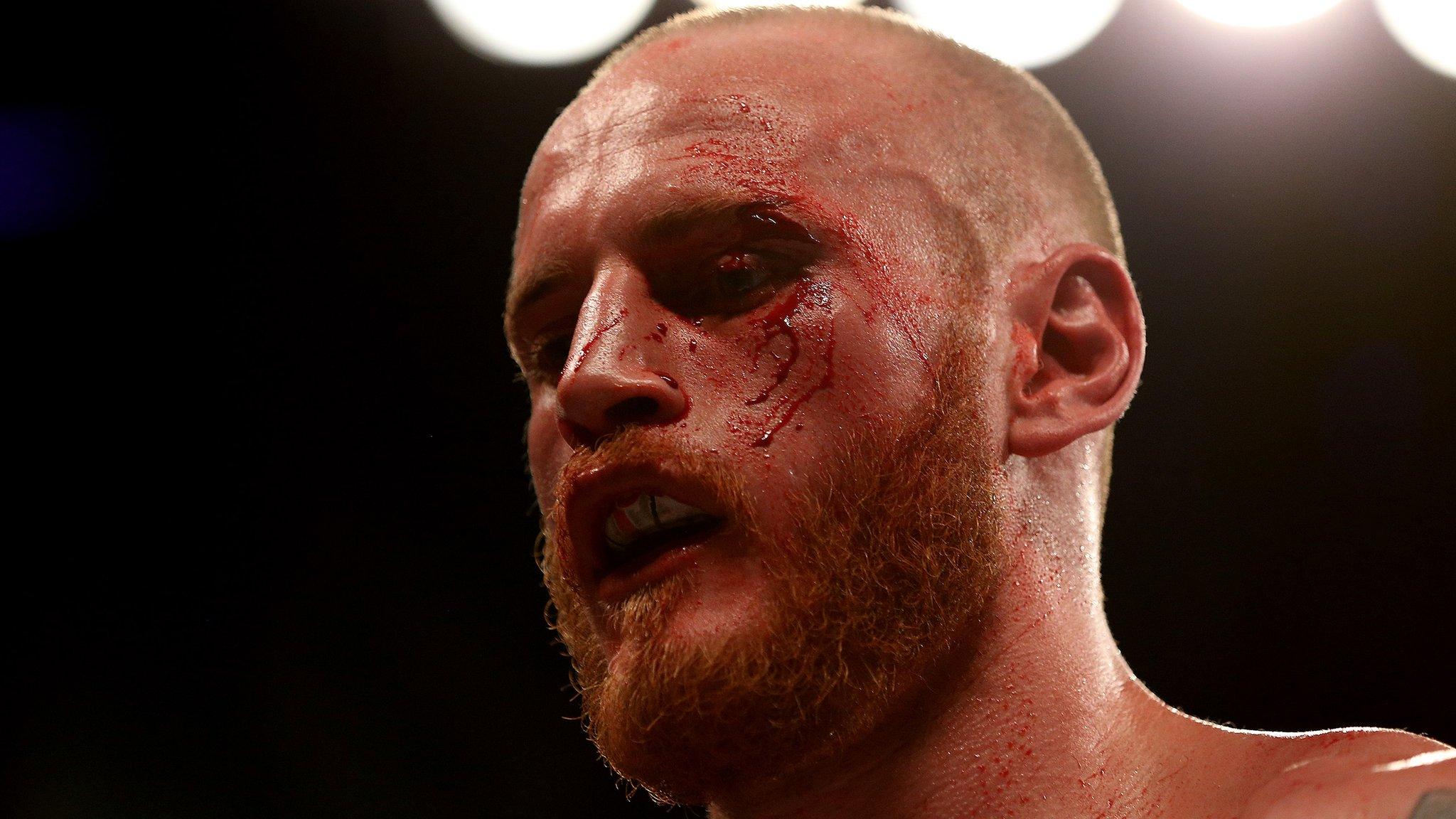
- Published30 May 2017
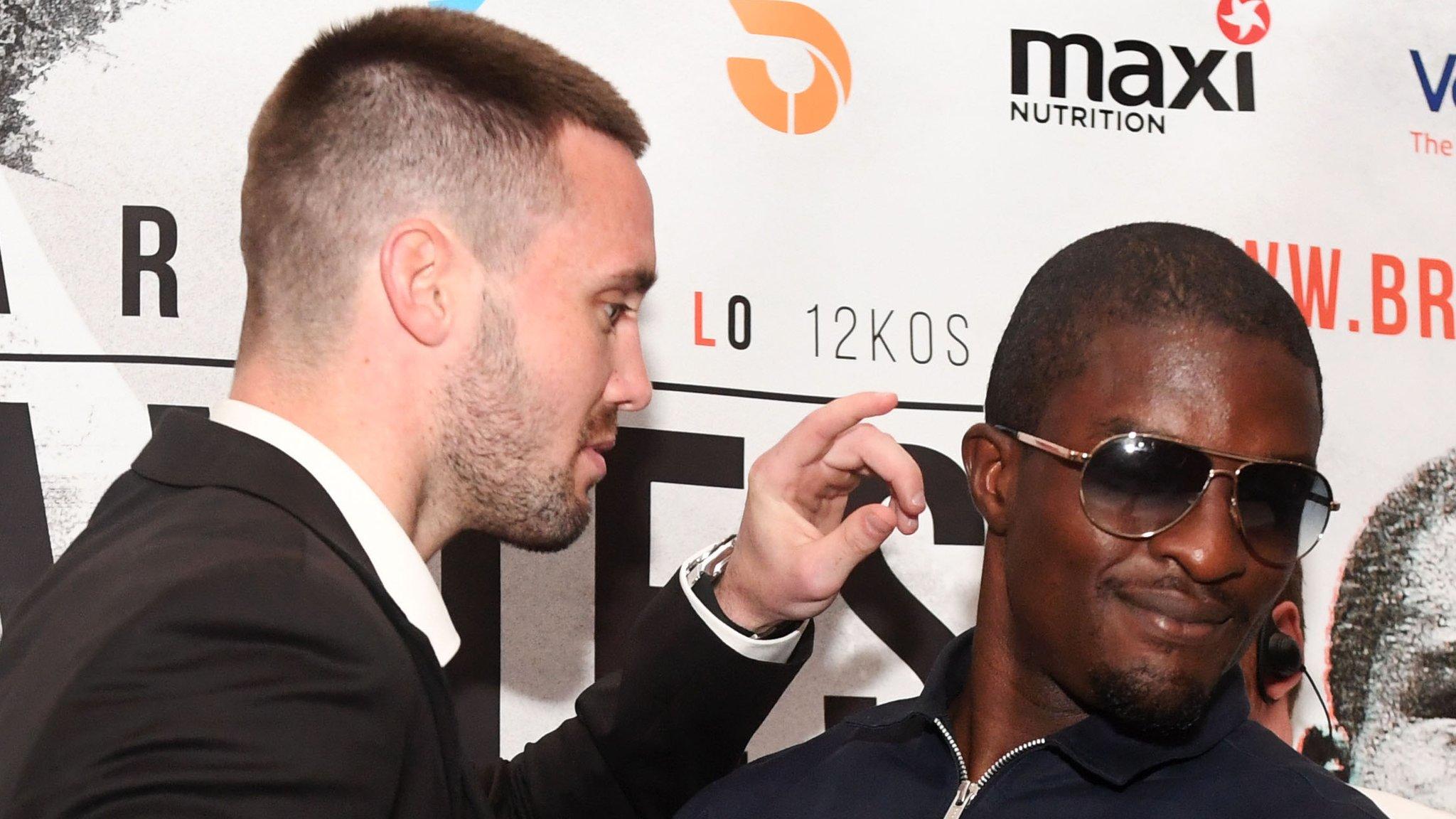
- Published28 May 2017
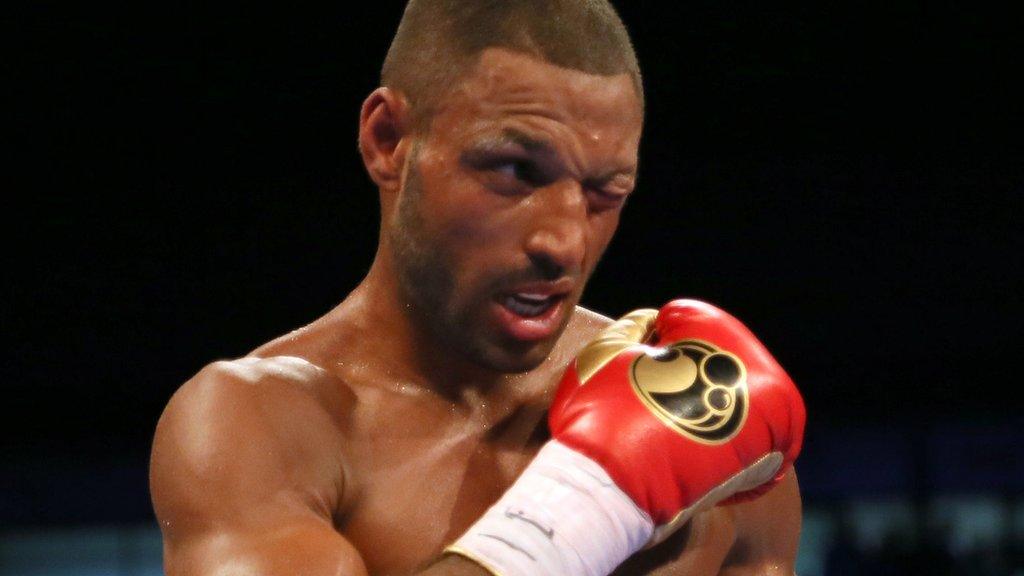
- Published22 December 2018
